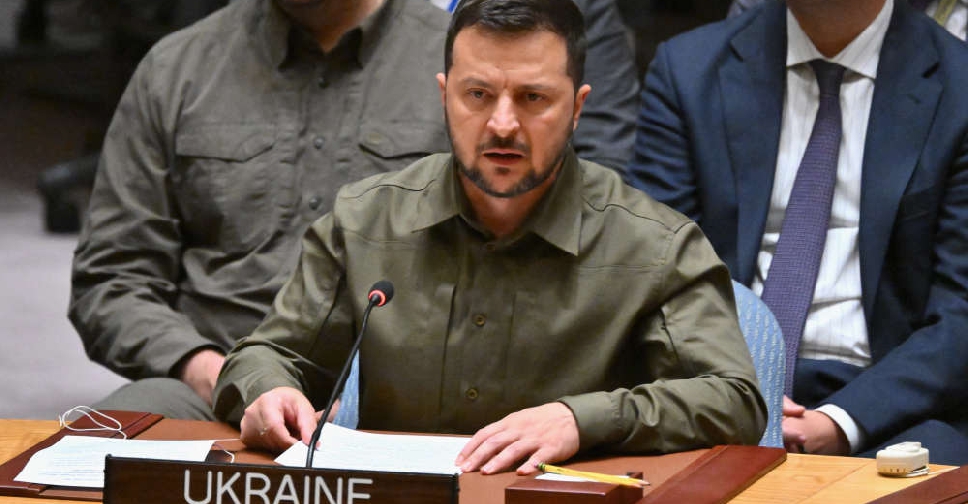
Ukrainian President Volodymyr Zelenskiy, appearing in-person at the United Nations Security Council for the first time since the conflict with Russia, sought to shore up support for Kyiv's right to defend itself during a contentious meeting on Wednesday.
While the council meeting put Zelenskiy at the same table as Russian diplomats, he did not cross paths with Russia's Foreign Minister Sergei Lavrov.
Zelenskiy sat through the meeting's first hour and left before the arrival of Russia's top diplomat, who only entered the chamber to make a lengthy statement and then left.
"Ukraine exercises its right to self-defense," Zelenskiy told the 15-member council, dressed in his signature army green.
"Helping Ukraine with weapons in this exercise, by imposing sanctions and exerting comprehensive pressure on the aggressor, as well as voting for relevant resolutions, would mean helping to defend the UN Charter," he added.
Ukraine and Western countries have successfully isolated Russia diplomatically at the UN, where the 193-member General Assembly has overwhelmingly voted several times to condemn the invasion and demand Moscow withdraw its troops.
Their argument: Russia has violated the 1945 UN Charter.
But Lavrov accused Western states of being selective in their use of the UN Charter, using it on "a case-by-case basis exclusively based on their parochial geopolitical needs."
"This has resulted in a shaking of global stability as well as the exacerbation and the fomenting of new hotbeds of tension - risks of global conflict have heightened," Lavrov said.
Zelenskiy noted the deadlock of the UN Security Council on Ukraine, which has met on Ukraine dozens of times, but has been unable to take any action because Russia is a veto power.
"It is impossible to stop the war because all efforts are vetoed by the aggressor," he said.
Zelenskiy also spoke about an issue important to many UN members, particularly developing countries of the Global South - reform of the world body, specifically expansion of the Security Council.
"We need to act now. Our aspiration for peace should drive the reform."




 Israeli attacks on Gaza killed 60 people in 24 hours
Israeli attacks on Gaza killed 60 people in 24 hours
 Trump fires National Security Agency director
Trump fires National Security Agency director
 Israel steps up Syria strikes, says Turkey aims for 'protectorate'
Israel steps up Syria strikes, says Turkey aims for 'protectorate'
 US sending Israel 20,000 assault rifles that Biden delayed
US sending Israel 20,000 assault rifles that Biden delayed



